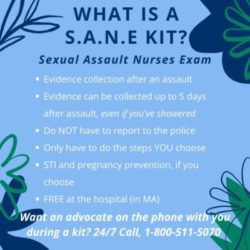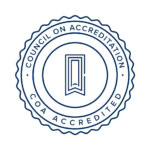How to Stay Safe if You Are Living in an Abusive Home

By Jeanne Ward
Director of Trauma Intervention Services, Wayside Milford
The state is reopening, and while some people are venturing out of their homes, those living with their abusers may not be able to leave. Virtual counseling is available across the state and rape crisis hotlines are up and running. Call our FREE, confidential hotline 24/7 – 1-800-511-5070.
Below are some tips for survivors to stay safe while at home during COVID-19.
What are the top 3 things people can do to keep themselves safe if they are living with an abuser during COVID-19?
- Programs across the state are running virtually. Survivors can find a program in their region by visiting Jane Doe Inc’s website for resources and to find help in your area. Reach out to a local Domestic Violence and Sexual Assault program to connect with an advocate. Our FREE hotline is running without interruption 24/7, and our advocates can be reached at 1-800-511-5070. Services are available in Spanish, Portuguese and English, and further translations are available upon request.
- Create a step by step safety plan. An advocate can help survivors devise a plan that is specific to your situation. Survivors should not be afraid to use an advocate’s time – the health and safety of survivors is the top priority of our advocates. (See Question 2 for more details on safety planning).
- Practice self-care. Taking care of basic needs is the foundation of self-care. When people are struggling, especially survivors, they tend to forget about self-care. It is also common for people who have experienced past trauma to feel a resurgence of fears. To stay grounded, survivors can remind themselves of what they have overcome in the past and know that they can get through this as well. They can practice mindfulness strategies such as mediation and yoga to help them stay focused. They can pay attention to what they can control when they feel like they are losing control. Survivors may want to make a list of things to remind you of how strong they are.
What are key safety planning measures that those living with an abuser can do during COVID-19?
Safety planning is crucial so when it’s time to leave a survivor knows who to contact or where to go. Shelters may be a difficult option right now – investigate alternative safe places, such as religious centers or staying with a friend. Connect with family, friends and/or an advocate to make them aware of the plan. This can be when the abuser is in the shower or sleeping. If survivors have children, consider their needs and how to keep them safe. Locating important documents like divorce papers, custody documents, birth certificates, immigration documents and put them in a place that is easy to access during an emergency. Store contact information for health care providers and prescriptions in your phone if possible, or try to memorize it.
What are things people can do if they experience Domestic Violence or Sexual Abuse for the first time during COVID-19?
COVID-19 is making it even harder for survivors to get help because they are with their abuser every day, under constant scrutiny and have less contact with community members. Many abusers are using the virus as a weapon and ignoring precautions or exaggerating risks to control survivors. Survivors should stay informed about the number of positive cases in their area and public places that have reopened. Trust information only from reputable sources such as Mass.gov and the World Health Organization to limit an abuser’s ability to twist the facts and/or manipulate survivors into staying home.
What can you tell survivors who are blaming themselves or feeling alone?
Domestic abuse and sexual assault this can happen to anyone, and the victim is never to blame. Services are available during the pandemic, and survivors should reach out to an advocate, safety plan or call the police if/when it is safe. Sexual Assault Nurse’s Exam (SANE) kits are available if survivors of rape or sexual abuse want to collect forensic evidence. SANE is still running across the state and they are working to open new centers outside hospitals to make access to SANE kits easier.
Other resources in Mass. from Jane Doe’s website:
- View a list of rape crisis center hotlines and direct links to their websites.
- Domestic Violence Safelink (a 24-hour multilingual statewide hotline) – 1-877-785-2020 TTY: 1-877-521-2601
- Intimate Partner Abuse Education Program – click here
- Children Exposed to Domestic Violence – click here
- Supervised Visitation – click here
- Civil legal needs for survivors of sexual assault and rape – Victim Rights Law Center
Resources outside Mass. or the U.S.:
- National Domestic Violence Hotline at 800-799-SAFE (800-799-7233) or visit https://www.thehotline.org/help/ (chat or call).
- The National Domestic Violence Hotline provides referral for people experiencing abuse as well as for those who may be causing harm to others. If you are concerned about your safety or how you are treating people in your life, please call or chat today.
- Americans Overseas Domestic Violence Crisis Center (AODVC) International toll free crisis line, 866-USWOMEN (866-979-6636) or visit www.866uswomen.org

